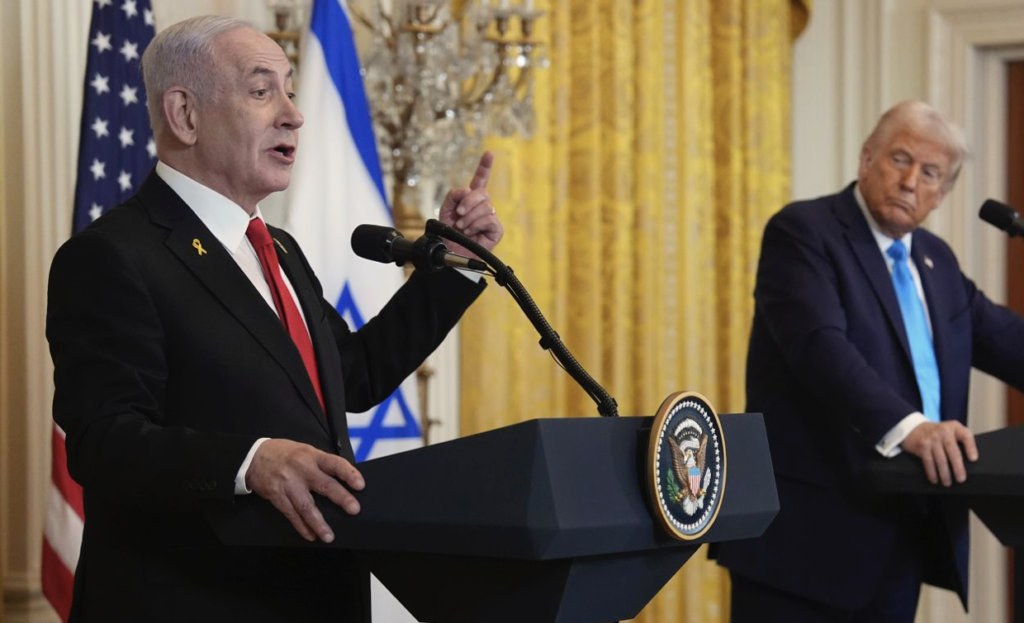
As Israeli Prime Minister Benjamin Netanyahu makes his way to Capitol Hill today, a significant question looms over discussions among Republican senators: Will they address President Donald Trump’s recent remarks regarding Gaza?
Trump’s comments, which suggested a potential U.S. role in taking control of Gaza, have sparked confusion and concern among Republican lawmakers. This issue took center stage during a closed-door GOP meeting on Wednesday, where Steven Witkoff, the president’s envoy to the Middle East, faced pointed questions from several senators. Lawmakers sought to understand the potential ramifications of Trump’s statements, particularly regarding the deployment of U.S. troops and the financial burden such an endeavor could impose on the United States.
The closed-door inquiries came at a time when GOP leadership has publicly downplayed the significance of Trump’s remarks, aiming to mitigate any political fallout. However, within the meeting, concerns were clearly voiced.
According to one lawmaker who spoke with CNN, there was “a lot of consternation” among those in attendance. Other lawmakers, however, described the discussion as a measured and respectful exchange, in which senators sought further clarification on what exactly Trump meant by his statements earlier in the week. Given the sensitive nature of U.S. involvement in Middle Eastern affairs, many senators appeared eager to assess whether Trump’s comments indicated a definitive policy shift or were merely rhetorical.
Beyond seeking general clarification, senators pressed Witkoff on specific logistical and humanitarian concerns. Direct questions were raised about whether U.S. troops would be deployed in Gaza, what level of financial support would be required to sustain such an operation, and whether such a move would inevitably lead to the displacement of Palestinian civilians. These inquiries underscored broader apprehensions about the feasibility, necessity, and potential consequences of any U.S. intervention in Gaza.
Following the meeting, Senator John Kennedy, a Republican from Louisiana, firmly expressed his opposition to any American financial commitment to Gaza’s reconstruction. Speaking to reporters after a GOP luncheon, he stated unequivocally, “I am not going to vote on spending any U.S. taxpayer dollars on rebuilding Gaza. That’s just one person’s opinion. In your natural lifetime or mine, you will not see me voting to take U.S. taxpayer money and rebuilding Gaza.” His remarks reflect a broader sentiment within the Republican Party, where many lawmakers are hesitant to commit financial resources to a region with complex geopolitical challenges.
During the closed-door session, Senate Armed Services Committee Chair Roger Wicker, a Republican from Mississippi, directly questioned Witkoff on whether he had been surprised by Trump’s comments. Witkoff responded that he was not, suggesting a level of prior awareness or internal discussions on the matter.
Wicker then pressed further, asking if this response implied that Trump’s plan regarding Gaza had been under consideration for some time. According to sources familiar with the meeting, Witkoff indicated that such discussions had indeed taken place. However, as CNN has reported, other members of the administration appeared unaware of any formal plans regarding U.S. involvement in Gaza, raising further questions about the extent to which Trump’s remarks reflect a concrete strategy versus an off-the-cuff statement.
As discussions continue, it remains unclear whether Trump’s comments will translate into actual policy proposals or remain a controversial talking point. Meanwhile, Republican lawmakers are left grappling with the political and strategic implications of the former president’s statements, particularly as the GOP seeks to maintain a unified stance on U.S. foreign policy in the Middle East.


